
“It is not your job to fight stigmas.” How to build a career in STEM
The STEM field (science, technology, engineering and mathematics) is one of the most popular in the labour market. The ICT sector (information and communication technologies) in the Republic of Moldova generates about 7% of the country’s GDP, while jobs in the field of information technology are among the highest paid. However, few women are involved in this area. Only 20% of ICT jobs are held by women. And according to Eurostat, only 5% of senior positions in the technology industry are held by women.
The low representation of women in such fields as science, technology, engineering, which are the most competitive in the labour market, creates a gap in wages, experience and opportunities between men and women. To understand the model in which women tend to choose fields of activity in the humanities, rather than sciences with higher income potential, we talked with Daniela Plămădeală, an 18-year-old student working at a software and information technology company as a junior project manager, Ana-Maria Brînză, a product manager in the field of technology, co-founder of the Female Engineering Students League, Tech Woman Ambassador in 2020-2021, as well as Joanna Bagadzińska, a doctoral student at the University of Warsaw, who studies power and international politics, and chose the Republic of Moldova as a case study.
“IT is not an area that a girl will study”
The family and the education system are among the determining factors influencing the decision of boys and girls about their future careers. Stereotypes inherited from grandparents unwittingly shape our idea that there are areas suitable for men and areas suitable for women. Although Ana-Maria faced a number of prejudices, they did not demotivate her, but, on the contrary, inspired her to achieve her goals.
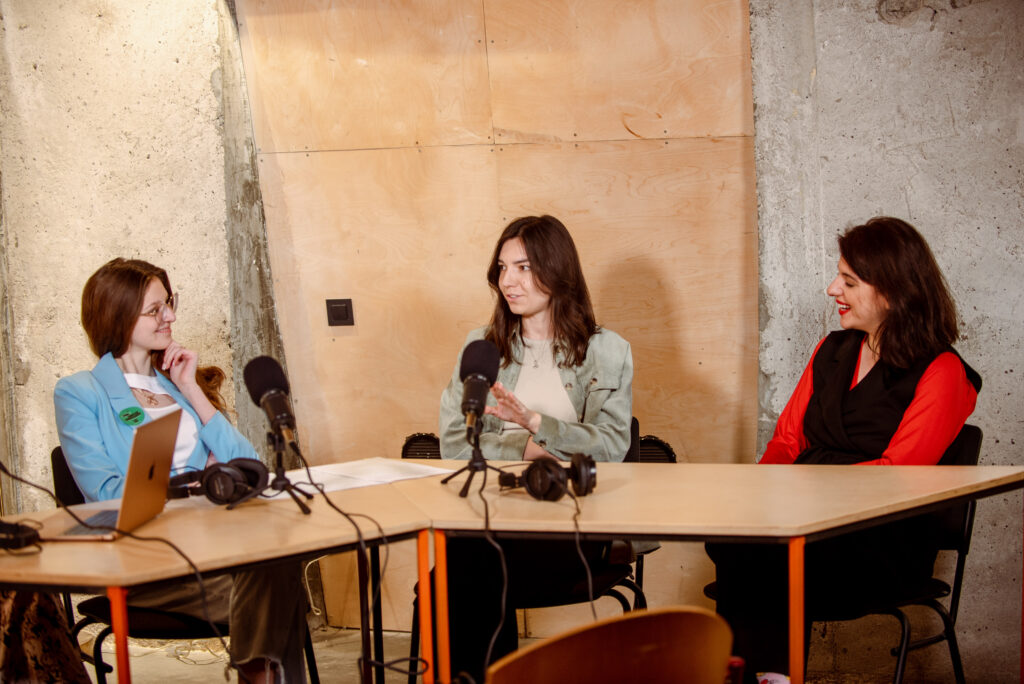
“Ever since the high school classes, when I told others that I wanted to study IT, that I wanted to enter the Technical university, there were people, including some relatives, who told me: ‘Yes, but you are a girl, this is not the field of study for a girl.’ It was the first time I encountered stereotypes, but that didn’t stop me. There were other people who supported my choice, including my mum, so I was lucky.”
Although, in the end, everything worked out for Ana-Maria, she admits that she often had to work more than her colleagues at the department, and the time spent on studying was directly proportional to the time spent on demonstrating to others one idea: “Hi, I’m here, I’m a woman, and I can do programming.”
As a Tech Woman Ambassador and mentor of Girls Go IT, Ana-Maria noticed behavioural patterns among young beneficiaries. “I would say that one of the obstacles why women don’t choose STEM is that the field is dominated by men. This may scare some away. Also, the fact that it is about engineering and technology, and we grew up with the vision that these areas are not for girls.”
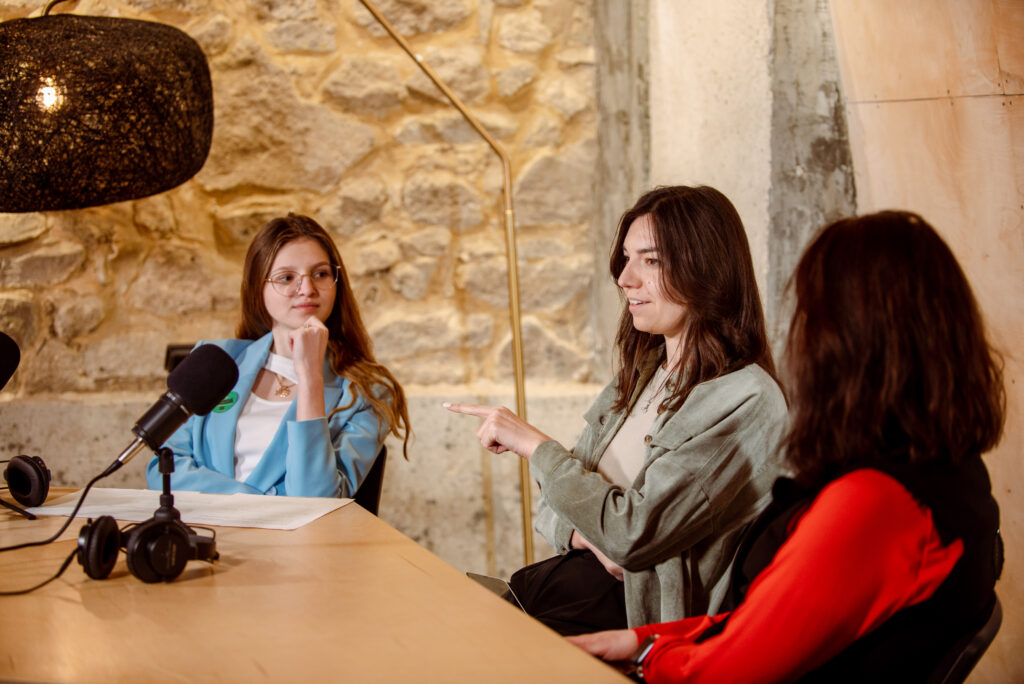
Although stereotypes are firmly rooted in our culture, in the conscious and subconscious, Ana-Maria is sure that they can be overcome thanks to the support of parents and close people, including the company’s management. “At the end of the day, I think it’s about self-confidence and support. You need to overcome your own fears, arm yourself with great courage, and interrupt people. Self-confidence, courage, perseverance – all this is necessary to be a professional and occupy a leading position in the field of technology. Besides that, I think that everyone in management accepts women, no one has ever underestimated me, but on the contrary, they supported me. I like that they always listen to everything I want to say, and I am always prepared, I have data with me, I prove my ideas, so that they are listened to, and, after, they are implemented.”
From Ana-Maria’s experience, stereotypes are just a framework in which we put ourselves with the help of society, and when we have the courage to overcome these barriers, we are surprised to find that they often disappear when we have the necessary knowledge.
“Social expectations create obstacles for competitive women”
Joanna also works in a mostly male-dominated field. She is a doctoral student and conducts research on a topic that is “less typical” for women, namely the study of international politics. Based on her research, personal experience and behavioral patterns analysis, Joanna explains why women are not included or are a minority in academia and technology.
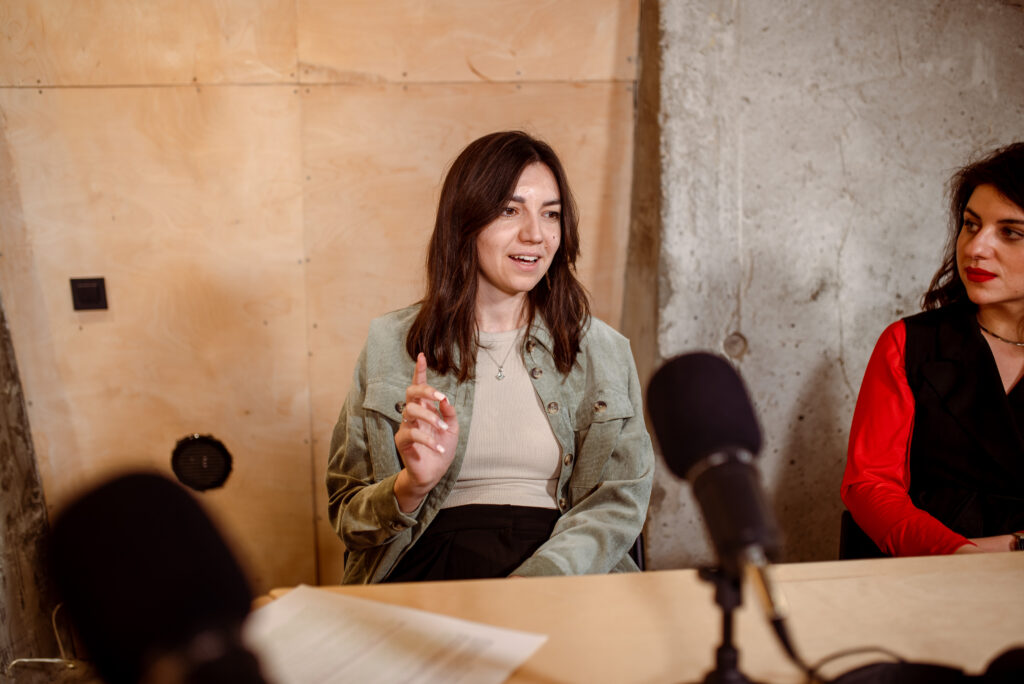
“I think a very big problem for women in science is that they don’t believe in themselves. Here, I mean that men socialise differently, that is, even if they are not competent enough, they are confident enough in themselves and really believe in their own strength. Maybe it is not related to stereotypes, because I am working on a dissertation in social sciences, and it is not as difficult as in natural sciences or information technology, but still, I think social expectations are a huge obstacle, because people expect us, as women, that we will behave in a certain way, and they perceive women differently.” Accordingly, many women succumb to this pressure and find themselves in areas other than those they would be interested in.
The doctoral student is confident that women can gain access and assert themselves in areas dominated by men, and this requires a higher level of indifference to the expectations of society. Women, according to Joanna, tend to be more disappointed with their own abilities than men. For this reason, one of the suggestions for a young woman is that girls should work not only on practical skills, but also on emotional intelligence and self-esteem.
“I think we really need to stop thinking too much, underestimating, we need to start taking care of ourselves, saying nice things to ourselves, because even if we don’t realise it, these things stay in our head. Therefore, I am very glad that we have places where women are much more open to saying nice things to themselves. I think sometimes that our peculiarity lies in the spirit of competition, that everyone fights for herself, while men always cheer each other on. We need such energy, such atmosphere, it is very important to have space, and it can also be a very informal community, where we can tell ourselves that we have done a good job.”
There are 18 students in Joanna’s university group, but only two of them are women. This aspect further emphasises the spirit of rivalry for a girl, who is sure that once she has a clearly defined goal, she will surely be able to find all the necessary levers to achieve it.

“Sometimes it is very difficult, especially when you do research that includes interviews, because people don’t take you seriously. But I use this situation as an opportunity, especially when there is a very demanding interlocutor, because he thinks that I am just a 20-year-old girl and do not know much. In this case, it is very easy to get some information. My plus is that I have the right character for this: I do not care on a personal level, and I never thought it was about gender, because if I ever wanted something, I always achieved it.”
Joanna has faced stereotypes in her academic work, but in the end, she is sure that she should invest her knowledge and strength in activities that will help her become a professional in the field she has chosen, and not fight unfounded prejudices.
“As long as it is something you are comfortable with, you do what you love. It’s not your job to fight stigmas. You are a worthy role model depending on the actions you take, so you can also change some ideas. Perception does not change intentionally, it happens by itself.”
“You need to be ready to make mistakes”
At the age of 18, Daniela Plămădeală studies business and management at the Centre of Excellence in Economy and Finance, and got a job as a junior project manager in a company providing services in the field of software and information technology. The student notes that young women planning a career in STEM are motivated by other women who are already taking first steps in their careers.

“It is very important to debunk myths and celebrate the achievements of women in leadership positions, because by encouraging inclusivity and diversity in leading teams, we can help reduce artificial restrictions and create a fair working environment and become part of it.”
Although she just got her first job, the student managed to learn some valuable lessons that are not taught in university classrooms. “We need to develop ourselves, read books, find women with whom we can talk about this topic. The difference is that you need to be ready to make mistakes and understand that this is normal. It is part of the human experience, especially in the first job, as in my case.”
Daniela, based on her work experience, came to the conclusion that the educational system superficially refers to soft skills, which, moreover, are very necessary when a crisis situation arises, in stressful moments or when solving conflicts. Another skill that is not taught in educational institutions is the ability to adapt to various external and internal factors that can disrupt the workflow. “You have to be flexible and adapt to different circumstances and obstacles in order to achieve the best result.”
The girl is sure that any obstacle created by natural or artificial means can be overcome with more work and self-confidence. Daniela advises young girls who want to choose a career in STEM, but face stereotypes or self-doubt, not to give up their dreams, but to fight for their achievement.

“You have to believe in yourself and not let anyone say that you can’t do something. Show them you are capable, self-sufficient, ambitious. There are many opportunities in the STEM field, you just need to learn how to use them to your advantage.”
Ana-Maria, Joanna and Daniela are three young women who have managed to establish themselves in the fields where they work, thanks to their skills, perseverance, and courage. Although they have faced some stereotypes and pressure from society, the girls confidently declare that their success is just the tip of the iceberg, behind which lies a lot of hard work and effort that pays off when you do what you love.
Opportunities for young women in Moldova
As for opportunities for young women, things have become much better in Moldova in recent years, including in the STEM field. Boys and girls can take advantage of a series of programmes aimed at the development of soft skills and engineering.
“Girls Go IT is a good programme for high school girls who want to understand what IT, engineering and computer science are, test and try to understand whether this field is suitable for them or not. I founded the Female Engineering Students League at the Technical University of Moldova, a community of girls that also encourages, develops interpersonal skills and prepares for a career in STEM. Tech Women Moldova is another community that motivates women to join. This is a wonderful community of women aspiring to a career in technology, as well as successful women who are ready to share their stories, encourage and mentor other women who want to make a career in technology,” says Ana-Maria.
Ana-Maria is also passionate about Artificial Intelligence (AI), and knows several communities that support women interested in this field. “I can recommend AI in Action, they have hackathons and interesting projects, long-term programmes where you can create machine learning models in AI yourself, do them from scratch within a team.”
Ana-Maria admits that many trainings are now available to girls, and due to the fact that this area is gaining more and more popularity among young people, there are many programmes aimed at developing STEM skills. So many that it is difficult to list them all. People interested in STEM just need to have the courage and take advantage of all available opportunities.
Author: Valeria Batereanu
MOST READ
SEE ALSO

No, time is not on Russia‘s side

How to open an art business in Moldova: the experience of Alexandra Mihalaș

Be one step ahead of a hacker: check simple cybersecurity tips!
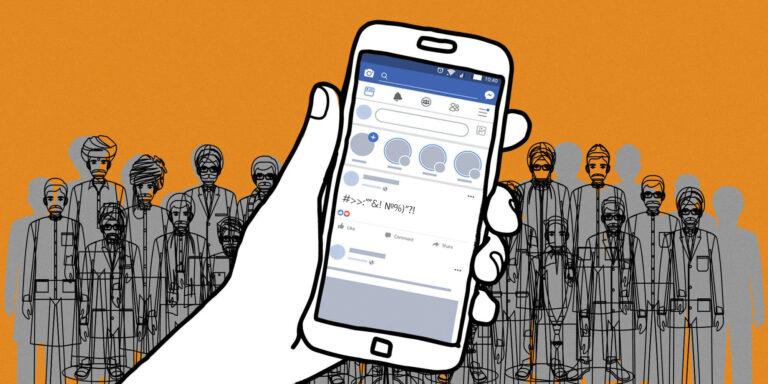
How to act and move on: strategies for women facing discrimination and online harassment
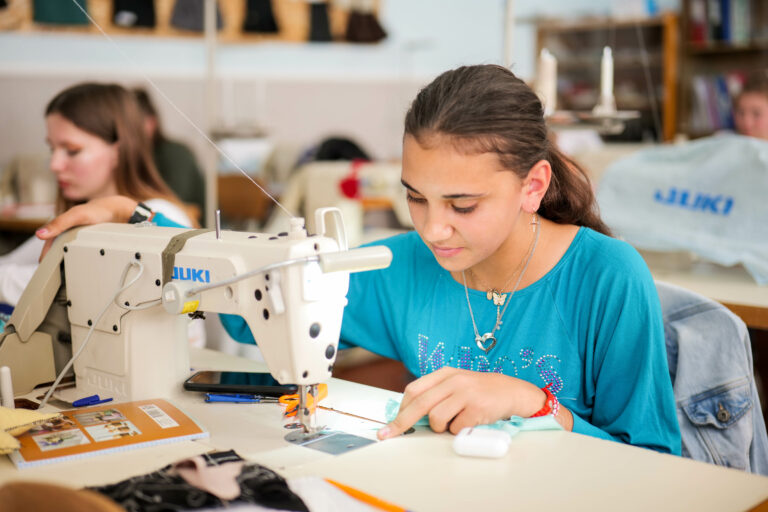
‘Learning is not a process but a journey’: the example of a school in Orhei
More campaign pages:
Interested in the latest news and opportunities?
This website is managed by the EU-funded Regional Communication Programme for the Eastern Neighbourhood ('EU NEIGHBOURS east’), which complements and supports the communication of the Delegations of the European Union in the Eastern partner countries, and works under the guidance of the European Commission’s Directorate-General for Neighbourhood Policy and Enlargement Negotiations, and the European External Action Service. EU NEIGHBOURS east is implemented by a GOPA PACE-led consortium. It is part of the larger Neighbourhood Communication Programme (2020-2024) for the EU's Eastern and Southern Neighbourhood, which also includes 'EU NEIGHBOURS south’ project that runs the EU Neighbours portal.

The information on this site is subject to a Disclaimer and Protection of personal data. © European Union,







